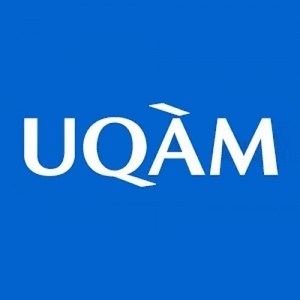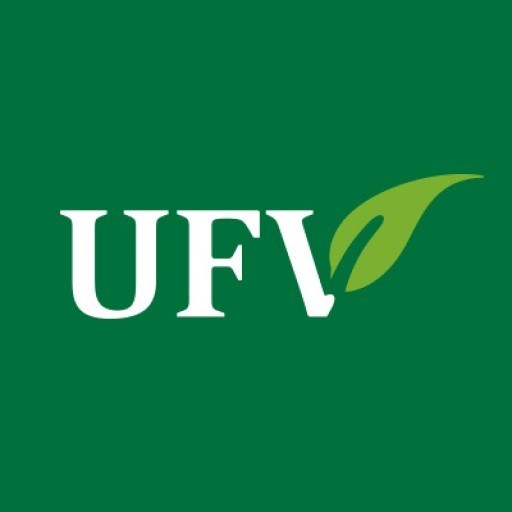Photos of university / #uqam
The Bachelor of Religious Sciences program at the University of Quebec in Montreal offers students a comprehensive understanding of religious beliefs, practices, and texts from diverse cultural and historical perspectives. This undergraduate degree is designed to equip students with critical analytical skills, deepen their knowledge of major world religions, and explore the philosophical and ethical questions that underpin spiritual traditions. Throughout the program, students examine religious phenomena through multidisciplinary approaches, including history, anthropology, theology, and literature, fostering a well-rounded understanding of the role religion plays in shaping societies and individual lives. The curriculum covers core topics such as the origins and development of religious systems, sacred texts, rituals, symbolism, and religious institutions. Students also engage with contemporary issues related to religion, such as interfaith dialogue, secularism, and the impact of globalization on religious communities. The program emphasizes research skills, encouraging students to analyze primary sources and conduct independent studies, which prepares them for careers in education, community work, counseling, journalism, or further academic research. With a multidisciplinary approach, students gain insights into the cognitive, cultural, and social dimensions of religion, promoting intercultural understanding and respect for diverse beliefs. The program benefits from a faculty of experienced scholars specializing in theology, anthropology, history, and philosophy of religion, providing students with mentorship and opportunities for active learning. Graduates of the Bachelor of Religious Sciences program will be well-equipped to critically assess religious phenomena, contribute thoughtfully to intercultural dialogues, and pursue advanced studies in religious studies, theology, or related fields. This degree fosters a broad-minded perspective and a respectful appreciation of religious diversity in a globalized world.
The Bachelor in Religious Sciences at the University of Quebec in Montreal offers students a comprehensive exploration of religious beliefs, practices, histories, and philosophies from a diverse range of cultural and theological perspectives. This program aims to develop a deep understanding of the role religion has played and continues to play in shaping societies, cultures, and individual identities worldwide. Students will engage in rigorous coursework that examines the fundamental texts, rituals, and institutions of major world religions such as Christianity, Islam, Judaism, Buddhism, Hinduism, and indigenous spiritual traditions. The curriculum emphasizes critical thinking and analytical skills, encouraging students to explore religious thought through historical, sociological, and philosophical lenses.
Throughout the program, students will participate in a variety of pedagogical activities including lectures, seminars, and research projects, fostering an active learning environment. They will have the opportunity to study religious languages, sacred texts, and religious art, gaining a nuanced appreciation of how religion manifests in various cultural contexts. The program also covers contemporary issues related to religion, such as secularization, interfaith dialogue, ethics, and the role of religion in modern society.
With a focus on both academic rigor and practical understanding, graduates will be prepared for careers in education, cultural consultation, community work, religious journalism, or further graduate studies in theology, religious studies, or related fields. The program encourages interdisciplinary approaches and cross-cultural understanding, equipping students with the skills necessary to analyze and interpret religious phenomena with sensitivity and scholarly integrity. By the end of their studies, students will have developed a well-rounded perspective on the diversity of religious expressions and their significance in a globalized world.
The Bachelor of Religious Sciences program at the University of Quebec in Montreal (UQAM) is designed to provide students with comprehensive knowledge of religious traditions, theological concepts, and the historical development of various faiths. The curriculum covers core topics such as the history of religions, philosophical foundations of religious thought, sacred texts analysis, and the role of religion in contemporary society. Students are encouraged to develop critical thinking skills and a nuanced understanding of religious phenomena through lectures, seminars, and research projects. To complete the program, students typically must earn a minimum number of credits, including general education courses, core religious studies courses, and electives related to specific traditions or interdisciplinary areas. Admission requirements generally include a high school diploma or equivalent, with a preference for applicants demonstrating interest or background in humanities or social sciences. Throughout the program, students may be required to participate in internships or community projects to gain practical experience. The final requirement often involves a capstone project or thesis that synthesizes their learning and explores a particular topic within religious sciences. Assessment methods include examinations, essays, presentations, and participation in class discussions. The program aims to prepare graduates for careers in education, community work, intercultural dialogue, or further academic research in religious studies.
Want to improve your English level for admission?
Prepare for the program requirements with English Online by the British Council.
- ✔️ Flexible study schedule
- ✔️ Experienced teachers
- ✔️ Certificate upon completion
📘 Recommended for students with an IELTS level of 6.0 or below.
The financing of the Religious Sciences program at the University of Quebec in Montreal is primarily supported through a combination of government funding, student tuition fees, scholarships, and financial aid programs. The university, being a public institution, receives subsidies from provincial and federal government sources, which help subsidize operational costs and ensure accessible education for a diverse student population. Tuition fees for the program are structured based on residency status, with Quebec residents benefiting from lower rates compared to out-of-province and international students. These fees are periodically reviewed and adjusted in accordance with government policies and university budget requirements.
Students enrolled in the Religious Sciences program have access to various scholarship opportunities, both university-based and external. The university offers scholarships based on academic excellence, financial need, and specific eligibility criteria related to the student's background or intended area of study. For example, some scholarships may be targeted at students pursuing studies in religious or social sciences, supporting their financial stability throughout their studies. Additionally, the university participates in federal and provincial financial aid programs, such as government student loans and grants, which help students cover living expenses and other educational costs.
Work-study options and assistantship programs may also be available to students in this field, providing opportunities to gain practical experience while earning income. These positions are typically funded or subsidized by the university and allow students to develop professional skills relevant to their future careers in religious or community service settings.
Moreover, international students are often encouraged to seek external funding sources, including private scholarships and international aid programs. The university provides guidance and resources to help students identify suitable funding options and complete application processes.
Overall, the financing of the Religious Sciences program is designed to make education accessible and manageable for students through a multifaceted financial support system. The university continuously seeks to expand its financial aid offerings and develop partnerships with external organizations to increase funding opportunities. Students are advised to consult the university’s financial services and dedicated scholarship office for personalized assistance and up-to-date information regarding available funding options.
The Religious Sciences program at the University of Quebec in Montreal (UQAM) offers students a comprehensive curriculum designed to explore various aspects of religious beliefs, practices, and institutions across different cultures and historical periods. The program aims to develop students' understanding of religious phenomena through interdisciplinary approaches, combining insights from history, sociology, anthropology, philosophy, and theology. Students are introduced to major world religions such as Christianity, Islam, Judaism, Buddhism, Hinduism, and indigenous spiritual traditions, gaining a broad perspective on their origins, development, rituals, texts, and societal roles. The program emphasizes critical thinking, analytical skills, and cultural awareness, preparing graduates for careers in interfaith dialogue, cultural mediation, education, social work, or further academic research.
Throughout the program, students engage with a variety of teaching methods, including lectures, seminars, research projects, and fieldwork, fostering active participation and experiential learning. The curriculum covers key themes such as religious texts and beliefs, ethical systems, religious art and architecture, and contemporary issues like religious pluralism, secularism, and the impact of religion on politics and society. The program also explores the historical evolution of religious movements and their influence on civilizations, as well as the role of religion in modern social issues and intercultural relations.
Students have opportunities to participate in internships, participate in conferences, and collaborate with religious communities and organizations, enriching their educational experience and practical understanding of religious sciences. The program is designed to be accessible to students from diverse backgrounds, encouraging dialogue and mutual understanding among different faith traditions and secular perspectives. Graduates from the Religious Sciences program at UQAM are equipped with a deep knowledge of religious diversity and competence in analyzing religious phenomena, making them well-suited for careers in education, journalism, public service, non-profit organizations, or academic research. The program also emphasizes ethical considerations and promotes respectful engagement with different religious communities and viewpoints, fostering a more inclusive and understanding society.


